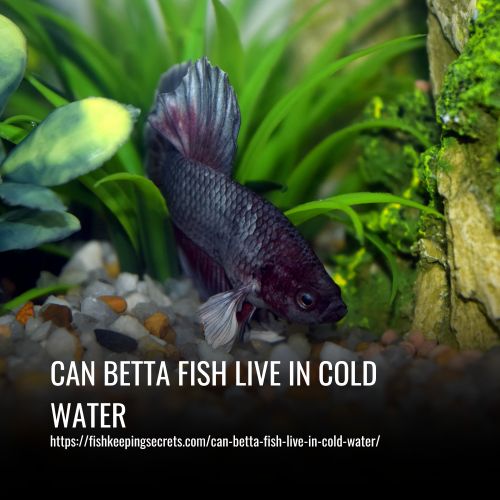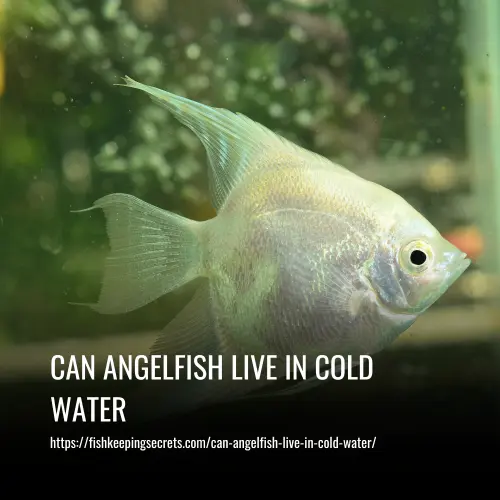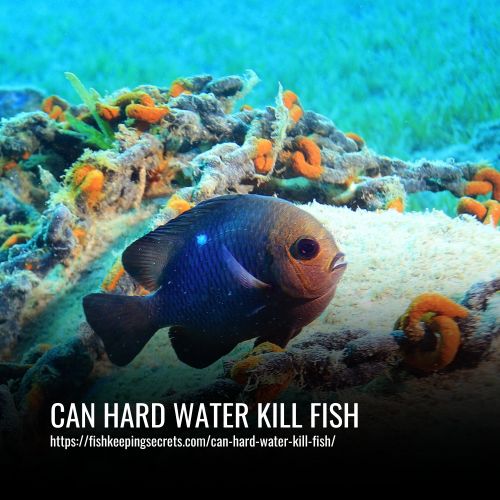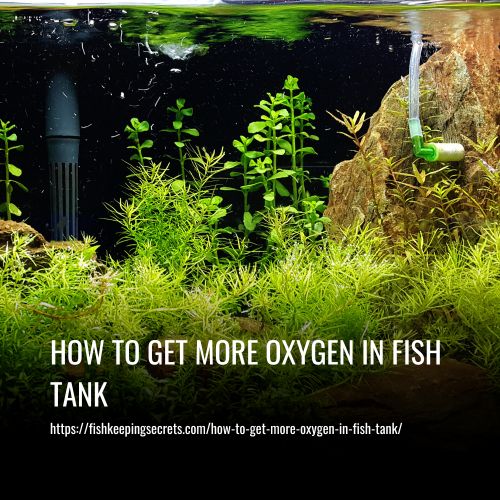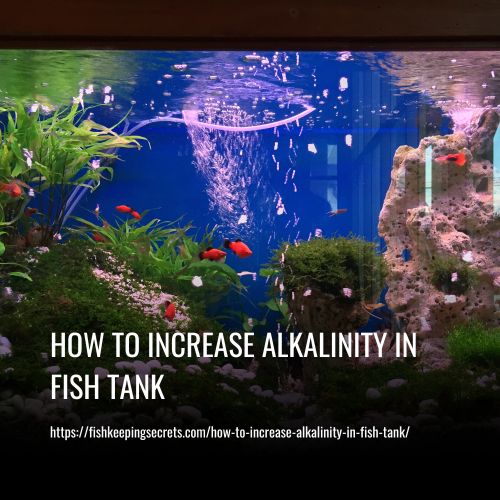Can Betta Fish Survive In Tap Water
This post contains affiliate links. As an Amazon Associate, we earn from qualifying purchases.
Yes, Betta fish can survive in tap water as long as it is properly treated. However, it is important to remove any potential toxins and contaminants before adding the tap water to the fish tank. Using a water conditioner or dechlorinator can help neutralize harmful chemicals such as chlorine and chloramines. Additionally, it is recommended to monitor the water parameters regularly to ensure the water quality is suitable for the Betta fish’s well-being.
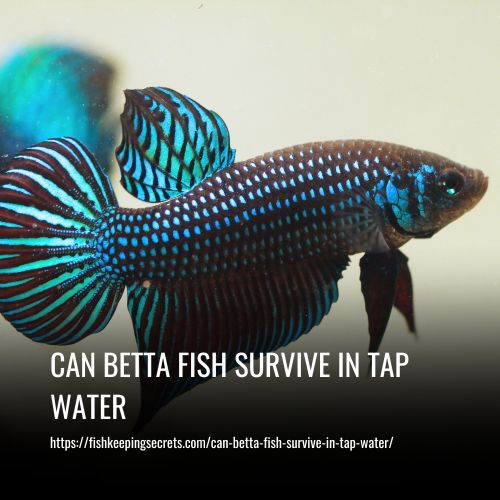
Can Betta Fish Live in Tap Water Overnight
Leaving betta fish in tap water overnight is not recommended, except for emergency situations. These situations include a sudden tank breakage or someone unexpectedly leaving a betta fish at your place without notice. In such cases, you may not have the necessary supplies, like a water conditioner, readily available.
However, if possible, it’s best to avoid leaving betta fish in tap water overnight. Although they can survive for about 24 hours in poor conditions, it is not considered good practice. Moreover, betta fish are sensitive creatures and can become sick if exposed to contaminated tap water. To ensure their well-being, it is advisable to use conditioned or treated water instead of tap water.
How Long Can a Betta Fish Live In Tap Water
Betta fish cannot survive in untreated tap water for an extended period of time. The chemicals present in tap water can harm their bodies upon contact. To make tap water suitable for Betta fish, it needs to be conditioned with an aquarium water conditioner to remove harmful contaminants.
However, conditioned tap water alone is not enough for long-term Betta fish survival. Regular water changes are necessary to provide clean and fresh water for the fish. Along with tap water contaminants, waste produced by the Betta fish and other tank mates can pollute the water over time. Despite the maintenance required, with proper care, Betta fish can live a long and healthy life in a tank using tap water.
Is Tap Water Safe For Betta Fish
Tap water can be safe for betta fish, but it needs to be treated and conditioned before adding it to the tank. The chemicals present in tap water, such as chlorine, ammonia, and chloramines, can be harmful to betta fish. It is important to use a water conditioner to remove these chemicals and make the water safe for your fish. If you are unable to treat the tap water, using spring water is a safe alternative.
However, it is important to note that purified/distilled water should be avoided as it lacks the necessary minerals that betta fish need for their health.
What Does Tap Water Do to Betta Fish
Tap water can have harmful effects on betta fish due to the presence of chlorine. While chlorine is used to make water safe for human consumption, it can be toxic to fish. Here are some potential adverse reactions caused by chlorine exposure:
1. Hypoxia: Chlorine reduces the amount of dissolved oxygen in betta fish tanks, making it difficult for them to breathe properly. This can lead to hypoxia, which is a condition characterized by a lack of oxygen.
2. Gill tissue necrosis: Chlorine can irritate and inflame the gills of betta fish. Prolonged exposure can result in gill tissue necrosis, increasing the risk of infection and ultimately leading to the death of the fish.
3. Sudden death: In certain cases, betta fish can die within minutes due to chlorine poisoning. This reinforces the importance of treating tap water before adding it to the tank.
To ensure the well-being of your betta fish, it is crucial to remove chlorine from tap water before using it in their tanks. This can be done by using a water conditioner or by allowing the water to sit for at least 24 hours, allowing the chlorine to dissipate naturally.
What Are the Pros and Cons of Tap Water for Betta Fish
There are both pros and cons to using tap water for betta fish. Here are some of the advantages and disadvantages:
Pros:
1. Cost-effective: Tap water is readily available and does not require purchasing bottled water, saving money in the long run.
2. Convenience: Tap water can be easily accessed and filled into the tank whenever needed.
3. Low chlorine content: Many municipalities treat their tap water with a low chlorine content, which is beneficial for fish.
Cons:
1. Chlorine concerns: Some people worry that the chlorine in tap water can harm bettas. Chlorine can be harmful in high doses and may cause stress or illness in fish.
2. Water quality concerns: Some individuals do not trust the quality of municipal tap water and believe that only bottled or filtered water is safe for their fish.
3. Lack of other beneficial minerals: Tap water may lack important minerals or elements that are beneficial for betta fish, requiring additional supplementation.
It is important for betta owners to take precautions and properly treat tap water before adding it to the tank to ensure the health and well-being of their fish.
How to Treat Tap Water for Betta Fish
Properly treating tap water is crucial to ensure the health and well-being of your Betta fish. Here is a step-by-step guide to help you treat tap water for your Betta:
1. Purchase a Water Testing Kit
Before treating the water, it’s important to test it for contaminants such as pH, chlorine, ammonia, nitrites, and nitrates. Using a reliable testing kit like the API Freshwater Master Test Kit will give you accurate results.
2. Dechlorinate the Water
Tap water often contains chlorine and other chemicals that are harmful to fish. Use a water conditioner specifically designed for removing chlorine. If you don’t have access to a water conditioner, you can also let the water sit for 24 hours to allow the chlorine to dissipate naturally.
3. Allow the Water to Sit
After dechlorinating the water, let it sit for at least an hour. This will allow any remaining chlorine to dissipate and the water to reach a suitable temperature for your Betta fish.
4. Adjust the Water Temperature
Betta fish thrive in water temperatures between 76-82°F or 24-28°C. Use a heater if necessary to achieve and maintain the appropriate water temperature. Use an aquarium thermometer to monitor the temperature accurately.
5. Consider Additional Additions
Depending on the quality of your tap water, you may need to make additional adjustments to maintain the ideal water chemistry. For example, if your tap water is hard, you can add driftwood or Indian almond leaves to help reduce water hardness.
6. Check Water Parameters
Test the water parameters once again to ensure they are within a safe range for your Betta fish. It’s important to maintain a well-balanced and healthy environment for your fish. Allow the tank to cycle for the best results, especially if it’s a new tank.
By following these steps, you can effectively treat tap water and provide a suitable and livable environment for your Betta fish. Regular monitoring and maintenance of the water quality will help keep your Betta healthy and happy.
How to Treat Tap Water Without a Water Conditioner
Sometimes, it may be challenging to obtain a water conditioner for treating tap water for your fish tank. However, there are alternative methods you can use in such situations. Here are some options:
1. Aged Water
Fill your tank with tap water and let it sit for at least 24 hours before adding it to the tank. This allows the chlorine to naturally evaporate. However, this method is only effective if chlorine is the only issue with your tap water. If there are other harmful chemicals or contaminants present, such as chloramine or ammonia, this method will not address those.
2. Ultraviolet Light
Exposing tap water to ultraviolet (UV) light helps break down chlorine into harmless components. You can purchase a UV sterilizer and let the water flow through it for a few minutes before adding it to the tank. However, this method is not foolproof as it does not remove all harmful substances, and it is specifically designed for chlorine removal, not chloramine.
3. Vitamin C
Using vitamin C can neutralize chlorine in tap water. Vitamin C helps break down chlorine and makes it safe for fish. However, this method can be challenging to execute accurately as only a tiny amount of vitamin C powder is needed to neutralize chlorine. Any miscalculation can result in a lethal dose for your fish.
4. Activated Carbon
Chlorine can attach itself to activated carbon, making it an effective method to decontaminate tap water. If you have a filter, you can add activated carbon to it so that it can absorb chlorine from the water, ensuring it is safe for your fish. However, this method is not suitable for emergency situations as it takes time for activated carbon to remove chlorine completely.
5. Reverse Osmosis (RO)
Using a reverse osmosis system is considered the best method for ensuring the safety of Betta fish. These systems filter out impurities and remove harmful substances, making tap water as close to Betta-safe as possible. However, RO systems can be expensive and require regular maintenance.
When treating tap water without a water conditioner, it’s crucial to consider the specific needs of your fish and ensure their environment remains safe and healthy.
Factors to Consider Before Putting Your Betta Fish in Tap Water
Before putting your betta fish in tap water, there are several factors you should consider to ensure their health and well-being.
1. pH Level
Bettas prefer a pH level between 6.5 and 7.5. If the water is too acidic or alkaline, it can harm your fish. Use a pH testing kit to check the pH level of your tap water and make any necessary adjustments to ensure it falls within the ideal range for bettas.
2. Hardness of Water
Bettas thrive in water with a general hardness level between 5 and 15 dGH. If your tap water is too hard or too soft, it can negatively impact your fish. Use a water testing kit to measure the hardness of your water and take steps to adjust it if needed for the optimal health of your betta.
3. Chlorine Level
Tap water often contains chlorine, which is used to kill bacteria and prevent the spread of disease. However, chlorine can be harmful to fish. Use a chlorine testing kit to check the chlorine level in your tap water. If it is too high, you will need to treat the water to remove or neutralize the chlorine before adding your betta.
By considering these factors and ensuring that the tap water meets the specific water quality requirements of bettas, you can create a suitable and safe environment for your fish to thrive.
What Are Some Tips for Keeping Betta Fish in Tap Water
Taking care of betta fish in tap water requires attention to their needs and water quality. Here are some tips to ensure their well-being:
1. Regular Water Replacements
Tap water may contain chlorine and other harmful chemicals, so it’s important to replace the water regularly. Consider changing the water at least once a week to maintain good water quality.
2. Use a Water Conditioner
To remove chlorine and other pollutants from tap water, use a water conditioner specifically designed for aquarium use. This will help create a safe and suitable environment for your betta fish.
3. Check the pH Level
Bettas prefer a slightly acidic to neutral pH level between 6.0 and 7.5. Before adding tap water to the tank, check its pH level and adjust it if necessary. There are pH testing kits available for this purpose.
4. Provide Hiding Places
If you have multiple betta fish in the same tank, make sure to provide plenty of hiding places. This helps reduce stress and aggression among the fish. Decorate the tank with plants, caves, or other structures where they can retreat and feel secure.
Remember, betta fish are sensitive to water conditions, so it’s important to monitor the quality regularly. Taking these precautions will help create a suitable environment for your betta fish in tap water.
FAQs
While Betta fish are hardy and can survive in various water conditions, it is not advisable to keep them in plain unfiltered tap water. Tap water contains chlorine, heavy metals, and other impurities that can be detrimental to the health of the fish. It is essential to use a water conditioner to remove these harmful substances or opt for filtered water to maintain the well-being of your Betta fish.
It is not recommended to keep a betta fish in untreated tap water as it can be harmful to their health. While they may survive for a few days, it is likely that they will not last more than 24 hours in an uncycled tank with untreated tap water. It’s important to provide a proper and suitable environment for your betta fish by treating the tap water with a water conditioner and ensuring the tank is properly cycled.
Maintaining the ideal water parameters is crucial for the health and longevity of your betta fish. The pH level of the tank water should ideally be within the range of 6.5 to 7.5. While bettas thrive in softer water, they can also tolerate water that is medium to semi-hard. Betta fish prefer water temperatures between 76-80 degrees Fahrenheit, as this is the optimal range for their metabolism and overall health.
Tap water needs to be treated because it contains chemicals like chlorine and chloramine, which are added to kill harmful bacteria and make it safe for human consumption. However, these chemicals can be toxic to fish and other aquatic life. They can also harm the beneficial bacteria in your aquarium and affect the pH levels and salinity of the water. To ensure the safety and well-being of your fish, it is necessary to de-chlorinate the tap water before adding it to the aquarium.
It is recommended to do small partial water changes of 10% to 20% per week for a betta fish. If you have a larger tank, you can change 20% to 30% of the water every two to three weeks. Regular water changes help maintain a clean and healthy environment for your betta.
Chlorine and chloramine are dangerous to bettas because they can cause chemical burns to their gills and internal organs, even at low levels. This can result in extreme stress and pain for the fish. Some symptoms of chlorine poisoning in bettas include redness on their body, gasping for air at the water surface, and swimming erratically due to neurological damage.
No, betta fish cannot live in distilled water. Distilled water lacks the necessary minerals and nutrients that betta fish need to thrive. Additionally, the pH of distilled water can change rapidly when exposed to air, making it unsuitable for betta fish. It is best to use treated tap water or water specifically formulated for betta fish.
Spring water is generally safe for betta fish. However, it’s important to check and monitor the pH to make sure it falls within the recommended guidelines for bettas. While you won’t need a water conditioner to remove chlorine, adding a stress coat additive is a good idea.
In theory, well water can be used for betta fish tanks. However, it’s important to note that well water may contain heavy metals, chlorine, and chloramine, which can be harmful to the fish. Therefore, it is recommended to treat the well water with a de-chlorinator before adding it to the tank to ensure the water is safe for the betta fish.
If you have issues with tap water for your betta fish, there are a few steps you can take. First, you can use a high-quality dechlorinator to remove harmful chemicals like chloramines from the water. Second, you can invest in a reverse osmosis water filter to provide your betta with clean and safe water. However, be aware that the filter may change the pH of the water, so regular testing is necessary. Finally, using a water testing kit can help you monitor the water parameters and ensure they are ideal for your betta fish.
After adding a de-chlorinator to tap water, it usually only takes about a minute for the water to be safe for fish. Once the water is dechlorinated, you can transfer it to your fish tank.
Yes, betta fish can live in tap water their whole life, but it is important to properly condition the water. This includes dechlorinating it and ensuring the pH level and essential minerals are appropriate for the fish. Untreated tap water may contain chlorine and other harmful chemicals that can be toxic to betta fish, so it is important to take precautions and properly condition the water before adding it to the tank.
No, you should not add salt to tap water before adding it to a betta fish tank. Salt can be harmful to betta fish and can negatively affect their gills and respiratory systems. Betta fish are freshwater fish, so it’s best to use untreated tap water or properly conditioned aquarium water when filling their tank.
No, it is not recommended to keep betta fish in boiled tap water. While boiling tap water can kill pathogens, it does not remove chemicals such as chlorine. These chemicals can be harmful to betta fish. It is best to use water that has been treated to remove chlorine and other harmful substances before adding it to the betta fish tank.
Betta fish can live in tap water without conditioner if it has been treated using alternative methods. These can include using aged water, ultraviolet light, vitamin C, activated carbon, or reverse osmosis. It’s important to make sure the water is safe for the betta fish by removing chlorine and other harmful chemicals.
Conclusion
In conclusion, betta fish can survive in tap water under certain conditions. It’s essential to consider factors such as water quality, temperature, and the presence of harmful chemicals like chlorine and chloramine. Using a water conditioner to remove these chemicals, along with maintaining a suitable water temperature and providing regular water changes, can help betta fish thrive in tap water.
However, it’s important to note that not all tap water is suitable for betta fish, and some may require the use of filtered or conditioned water to ensure their health and well-being. Additionally, each betta fish is unique, and their individual needs should be taken into consideration when determining the best water source for them.

